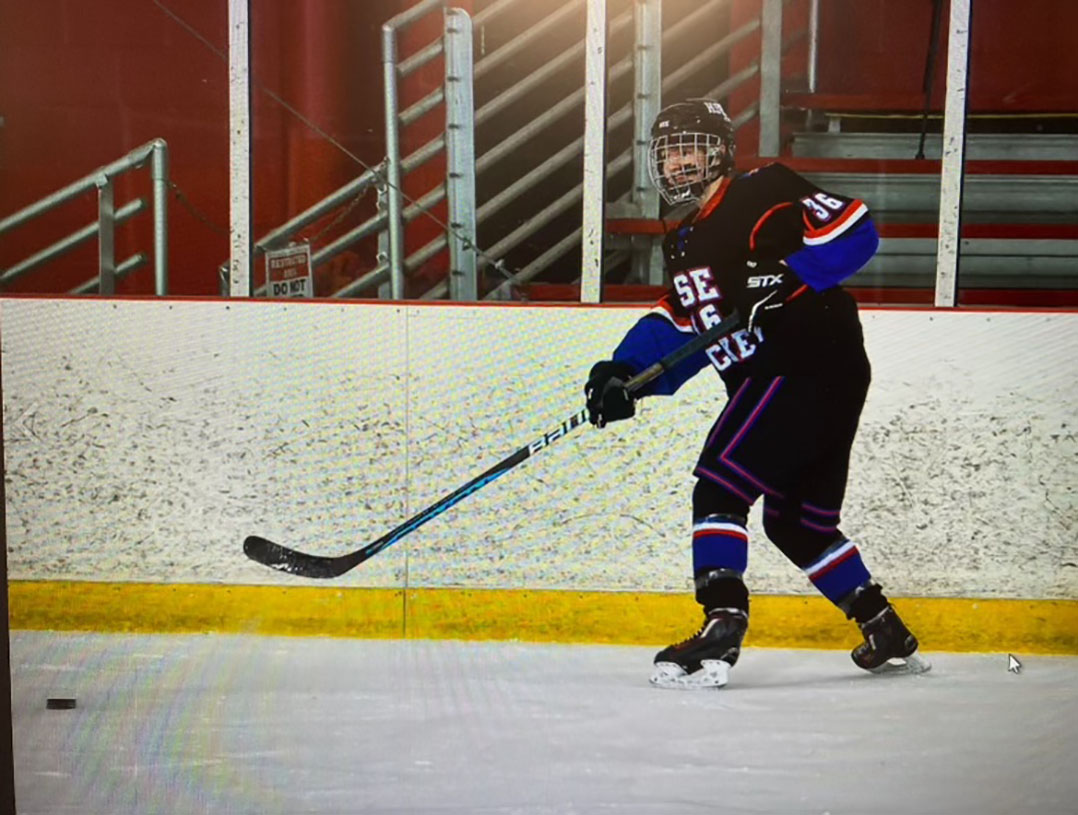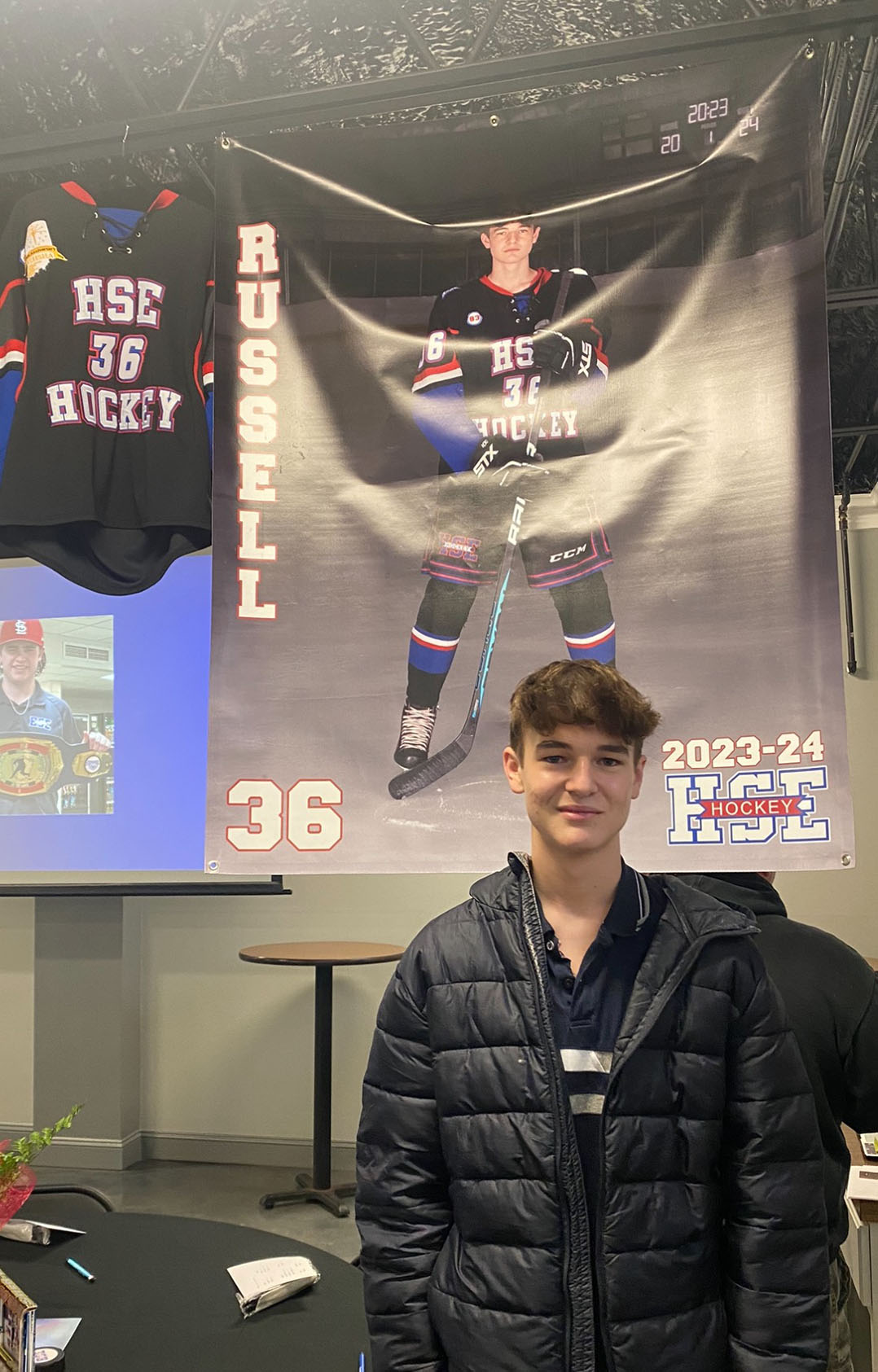Hamilton Southeastern High School senior Anthony Russell admits his quest to follow his passion for playing hockey has been terrifying at times.
Russell started experiencing dizziness and shortness of breath during his hockey tryouts his sophomore year. The condition persisted and grew worse when Russell started passing out during games, practices and then even in class.
“Passing out is an incredibly scary thing because you never know when you are going to pass out,” Russell said. “Part of it feels like you are trapped in a nightmare because everything goes dark, and you can’t see.”
Finally, he was diagnosed with neurocardiogenic syncope early in the fall of 2023, a condition that can cause fainting episodes with a drop in blood flow to the brain. He then was diagnosed with postural orthostatic tachycardia syndrome, known as POTS, in December 2023. The condition involves a fast heartbeat, dizziness and fatigue.

“It’s been a journey of medical emergencies and the constant fear of my condition impacting my ability to play the sport I love,” said Russell, who said he typically passes out once or twice a month. “It’s like walking on a tightrope every day never knowing when the next episode might strike.”

Russell said he was able to play as much as possible but often had to sit out practice and games because of his condition. He said he tried to make the most of his final season with HSE hockey, which ended in March.
Russell didn’t play as a freshman, sitting out the 2020-21 season amid the COVID-19 pandemic. Then as a sophomore, he felt like he couldn’t breathe during tryouts and conditioning.
“We thought that maybe I had anemia,” Russell said. “I had tests on every part of my body to figure out what was going on with me. Initially, my mother blamed it on me being out of shape. I have asthma, too, which makes the problem worse.”
At first, he was told as a sophomore he couldn’t play because of a heart test, but then he was cleared when it was discovered that was a machine error.
“When we were finally able to pinpoint what was going on with me, it gave me a sense of relief,” Russell said.
Russell’s mother, Michelle Haweit, a nurse practitioner, said he saw multiple specialists, cardiologists and pulmonologists before it was discovered.
“He’s gone through testing a couple different times to get clearance to play because there is a risk of sudden cardiac arrest in youth sports,” she said. “It was very nerve-racking. There were a couple of other parents in the medical field who volunteered to go to practice because he had to go with supervision. He was taken to the emergency room once this year from hockey when he was passed out for longer than normal.”
Haweit said there are days he tells his coach he can’t participate fully.
“It’s embarrassing for him,” she said. “If it was me, I would have quit a long time ago.”
Russell helped coach in the Learn to Play hockey program in the Indiana Youth Hockey Association this past season.
“Coaching allows me to pass down my love for hockey and inspire the next group of players,” said Russell, who started playing hockey at age 6.
Russell isn’t sure if his days of competitive hockey are over or if he will try to play in a recreational league.
“There are definitely moments of uncertainty but the love that I have for hockey fuels my determination to continue playing,” said Russell, who wants to pursue pediatric nursing in college. “The condition doesn’t go away and as far as my endurance goes, my doctor said this is the peak I’ll be at, so it’s kind of use it or lose it. My biggest goal is to inspire athletes who might face similar obstacles. I want them to know no matter how scary the odds might seem, you are capable of achieving your dreams and defying expectations.”



